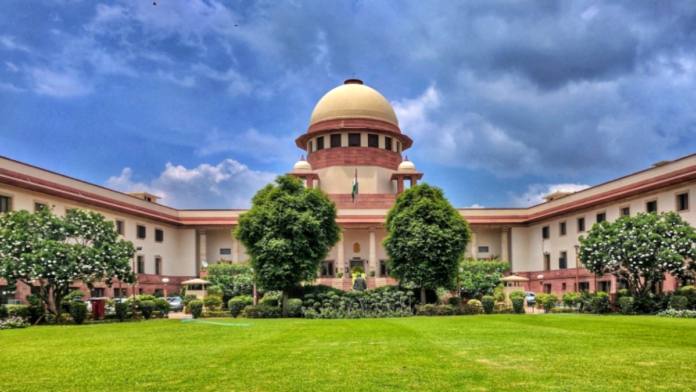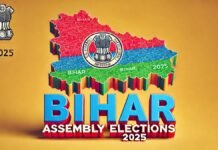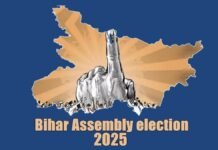
Key Points
- Supreme Court questions Election Commission (EC) on the timing and process of Special Intensive Revision (SIR) of Bihar’s voter list ahead of assembly elections.
- Court asks why Aadhaar, widely used as ID, is not accepted for voter verification during SIR.
- Bench asserts that citizenship verification is the Home Ministry’s jurisdiction, not the EC’s.
- Opposition and activists allege the process could disenfranchise millions of poor and marginalized voters.
- EC defends SIR as constitutionally mandated, aiming to weed out ineligible names and ensure accuracy.
New Delhi: A political storm has erupted over the Election Commission of India’s (ECI) decision to conduct a Special Intensive Revision (SIR) of the voter list in Bihar just months before the assembly elections. The move, intended to update and verify the electoral rolls, has drawn fire from opposition parties and civil society, who claim it could result in the exclusion of millions of vulnerable voters.
Court’s Observations and Concerns
During a hearing on multiple petitions challenging the SIR, a Supreme Court bench comprising Justices Sudhanshu Dhulia and Joymalya Bagchi made several pointed observations:
- No Fundamental Flaw, But Poor Timing: The court acknowledged the logic and constitutional mandate behind the SIR but criticized the timing, stating, “There is no flaw in the SIR process, but it should have been completed on time.” With elections near, the practicality of completing such a massive exercise in 30 days was questioned.
- Citizenship Checks Not EC’s Domain: The bench asked the EC, “Why are you getting into matters like citizenship during the special revision? This is a matter of the Home Ministry.” The court stressed that citizenship determination falls under the Ministry of Home Affairs, not the EC.
- Aadhaar Exclusion Questioned: The court pressed the EC on why Aadhaar widely used as an identity card was not being accepted for voter verification, especially when it is commonly used for other government services. The EC responded that Aadhaar is not proof of citizenship, which is required for voter eligibility.
- Logic in the Process, But Not in the Timing: The bench told petitioners not to call the SIR “artificial or imaginary,” acknowledging there is some logic in updating the rolls, but emphasized that the process should be separate from the election cycle and conducted well in advance.
Arguments from Both Sides
Election Commission’s Stand
- Constitutional Mandate: The EC argued that the SIR is required under the Representation of the People Act, 1950, and is aimed at ensuring only eligible citizens are on the voter list.
- Need for Accuracy: The last such revision was conducted over two decades ago, and the EC claims the current exercise is necessary to remove duplicate and ineligible entries, especially after large-scale additions and deletions in recent years.
- Aadhaar Not Proof of Citizenship: The EC maintains that while Aadhaar is a valid identity proof, it does not establish citizenship, which is a prerequisite for voting rights. Therefore, it is not included in the list of accepted documents for SIR.
Petitioners’ Concerns
- Disenfranchisement Risk: Petitioners, including opposition parties and NGOs, contend that the SIR’s timing so close to the elections could lead to the exclusion of millions, particularly the poor, migrant workers, and marginalized communities who may lack required documentation.
- Arbitrary and Discriminatory: Lawyers for the petitioners argue that the EC’s refusal to accept Aadhaar and the demand for additional documents, sometimes even those of parents, is arbitrary and discriminatory. They allege the process is designed to exclude rather than include voters.
- Practical Difficulties: Many rural and migrant families struggle to provide documents like birth certificates or land records, further complicating their ability to remain on the voter rolls.
What Happens Next?
The Supreme Court has not found the SIR process itself unconstitutional but has demanded explanations from the EC on its timing, the exclusion of Aadhaar, and the scope of citizenship checks. The case remains under active consideration, with the court emphasizing the need to protect the right to vote while ensuring the accuracy of electoral rolls.
The controversy over Bihar’s voter list revision underscores the tension between ensuring accurate electoral rolls and safeguarding the rights of vulnerable citizens. As the Supreme Court scrutinizes the Election Commission’s methods and timing, the outcome will have significant implications for the upcoming elections and the integrity of India’s democratic process.





















































